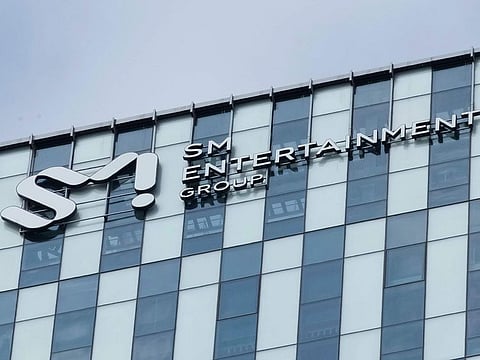How Kakao won a takeover battle against HYBE for K-pop pioneer SM Entertainment
SM is home to popular K-pop groups such as Girls' Generation, H.O.T., EXO and Red Velvet

Seoul: South Korean K-pop pioneer SM Entertainment Co Ltd is poised to fall under the grip of social media giant Kakao Corp after HYBE Co Ltd, the agency representing boy band BTS, on Sunday dropped a bid to take control.
Why is SM attractive?
SM, founded in 1995 by South Korean folk song singer Lee Soo-man with just 50 million won ($37,600) of capital, was the K-pop industry's trailblazer, preceding two rival agencies - JYP Entertainment and YG Entertainment - that sprang up in later years.
For more than two decades, the K-pop industry was dominated by the trio until BTS rose to global fame in recent years, making its agency HYBE the largest music label in the country.
SM, branded with Lee's initials, is credited with setting the groundwork for K-pop's global success, including the first breakthrough in 2002 when SM artist BoA topped Japan's music charts.
After BoA's achievement in Japan, other South Korean pop groups began overseas activities in earnest, starting in Asia and later expanding to the U.S. and Western Europe.
SM is home to popular K-pop groups such as Girls' Generation, H.O.T., EXO, Red Velvet, Super Junior, SHINee, NCT Dream and Aespa.
It is the second-largest entertainment group in South Korea by market value at $2.8 billion, trailing HYBE, which is worth $5.5 billion.
Family feud with 'Emperor Lee'
Larger-than-life Lee, 70, considered the "godfather" of K-pop, has not assumed any official title at SM for years.
He instead exerted his influence through a private company that he set up to help the industry's global expansion and offer management and training services.
Activist fund Align Partners, which owns about 1% of SM, last year began demanding its management team, led by Lee's nephew and protege Lee Sung-soo, cut business ties with the founder, citing governance issues and high fees paid to Lee's private company.
Frictions between SM and Lee came to the fore last month when his nephew called the founder "Emperor of SM Empire" in a YouTube video and criticised him for demanding unfavourable revenue sharing deals and undermining SM's governance.
The nephew, 43, a 17-year-veteran of SM, said he had informed Lee on Jan. 17 that from now on he would make decisions as CEO rather than serving as a "rubber stamp".
In response, Lee said he was "hurt" by his nephew's words.
Takeover battle
In a bid to weaken the founder's influence, SM's management announced a $173 million share sale deal with Kakao last month that would make the tech group second-biggest shareholder after Lee, who remained the largest with an 18% stake.
Lee filed an injunction request to block the deal that was approved by a court, and sold a 15% stake in SM to rival agency HYBE, setting up a takeover battle.
HYBE launched a public tender offer to buy an additional 25% stake, but got little shareholder support.
Kakao, which owns around 5% of SM, upped the ante this month, launching a tender offer at a higher price to acquire up to 35% for 1.25 trillion won ($946.80 million).
HYBE said on Sunday its decision to halt the takeover bid came after the stock market had been showing "signs of overheating due to competition."
How does the acquisition help Kakao?
SM is perceived as a rare quality asset up for grabs because of the management dispute and Lee's decision to relinquish his stake.
Kakao, the most popular social media platform in South Korea, is expanding aggressively into the entertainment industry where it already owns a smaller K-pop agency, Starship Entertainment.
In January, Kakao Entertainment announced a 1.2 trillion won ($966.27 million) investment from Singapore's GIC and Saudi Arabia's Public Investment Fund, giving it more firepower for the SM bid.
Control of SM would bolster Kakao Entertainment's plans for an initial public offering, analysts said.
Sign up for the Daily Briefing
Get the latest news and updates straight to your inbox


